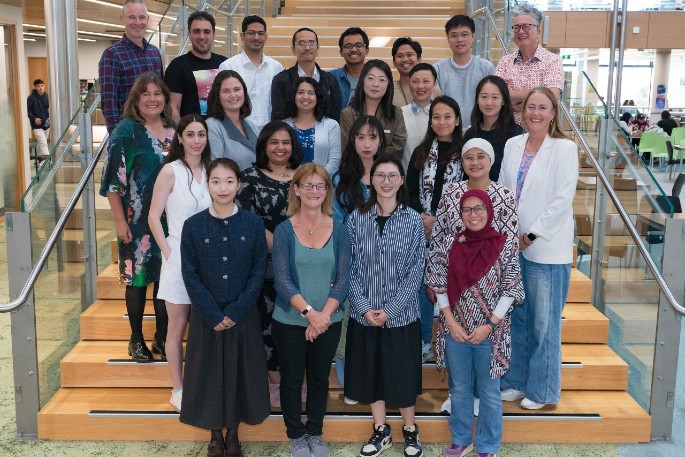This Content Is Only For Subscribers
New Zealand has a range of tourism programmes for those looking to get a formal education before entering the industry, and University of Otago’s is rated as one of the best.
The University’s Hospitality and Tourism programme ranked in the top 50 in the Shanghai Academic Ranking of World Universities in 2024, and the Tourism Department has around 130 equivalent fulltime undergraduate students studying tourism papers, alongside 10 Masters and 37 PhD students; numbers that University of Otago – Ōtākou Whakaihu Waka Department of Tourism head of department Associate Professor Anna Carr says are trending upwards.
“We would love more domestic students to realise that tourism can be a well-paid career and pursue postgraduate studies such as Masters and PhDs in tourism.
“In European countries where tourism careers are well regarded in mature destinations with strong heritage foci, it is not unusual to have a Masters or PhD and work in a high level tourism career – as the NZ industry matures we expect this to be the case here.”
For those looking to study tourism at the University of Otago, Professor Carr says there are a range of options.
“The Department provides teaching at the undergraduate level through the BCom (tourism major or minor, and a hospitality minor) and BA (Tourism, Languages, and Culture) which attracts a variety of students to Otago.
“At the postgraduate level, the Department offers a PgCert (tourism), PgDip (Tourism) and Master of Tourism.
“In addition, the Department supervises research students undertaking MCom, PhD and DBA level study,” she says.
“Many of the PHD students are tourism educators or academics from overseas universities. Many of our Undergraduate graduands are hired directly into the sector here and overseas.”
Professor Carr says while COVID might have had an impact on courses worldwide, the University of Otago has managed to keep their programme intact – with a few tweaks.
“We have focussed our papers in terms of COVID responsiveness around resilience,” she says.
“Nowadays – post-COVID – the department has one of the largest tourism cohorts in NZ.
“In Aotearoa the industry has rebounded well, proving its resilience but also New Zealand’s positioning as a stunning natural country that attracts international visitation.
“There is a strong demand for graduates – we are educating our graduates to be policy and decision-makers, visioners and planners, site managers in and at heritage, conservation, tourism and leisure sites and sectors.”
The entire programme is focused around responsiveness and forward thinking – something the tourism industry is mindful of post-COVID and with sustainability front-of-mind.
“We are teaching and researching around issues about resilience and regenerative tourism that is involving communities and a range of landscapes/environments at the forefront of what we teach.”
And she says graduates go on to have some pretty impressive roles in our tourism industry.
“Graduates work for destination management organisations, government departments e.g. the Department of Conservation, Heritage New Zealand, MBIE and tourism operations such as Shotover Swing.”
While it’s hard to say how many graduates stay in New Zealand and how many migrate into jobs overseas, Professor Carr says many go overseas for an OE then return to their roots.
“We have a department alumni group, which indicates this varies year to year – many graduates go on their OE overseas or return to tourism and related positions in London, India, China, Vietnam, Australia Canada, Europe as well as major NZ tourism destinations, cities and of course quite a few stay in Dunedin.
“Most PhD graduates will pursue careers as academics or government level consultants/policymakers with several becoming Ministers of Tourism in their home countries.”
While the degree no longer includes a distinctly practical element, Professor Carr says there is still involvement with and from the industry.
“Staff are active with Dunedin Host the local tourism, events and hospitality industry group in Dunedin (two staff members are on the committee as is one of our MTour alumnae).
“Staff also volunteer their time with not-for-profits such as Southern Heritage Trust (Dunedin),” she says.
“We have good relations with industry that enable industry-relevant projects for undergraduate and postgraduate students to be pursued via our papers/ postgraduate Masters and PhD programmes and Otago Business School initiatives such as IGNITE.”
When it comes to the industry thinking ahead and looking to snag these highly-qualified graduates, Professor Carr encourages people to get in touch with the Department.
“We can connect you with upcoming graduates who also get advice via our University of Otago Careers Advisory service.
“Please do not hesitate to email: [email protected] for more information.
“We would also like to say to schools that tourism studies are a valid tertiary field of study that can provide a well-paid pathway to and enriching and diverse career opportunities for our students.”
For more information on the Tourism programme at University of Otago, visit: www.otago.ac.nz/tourism



